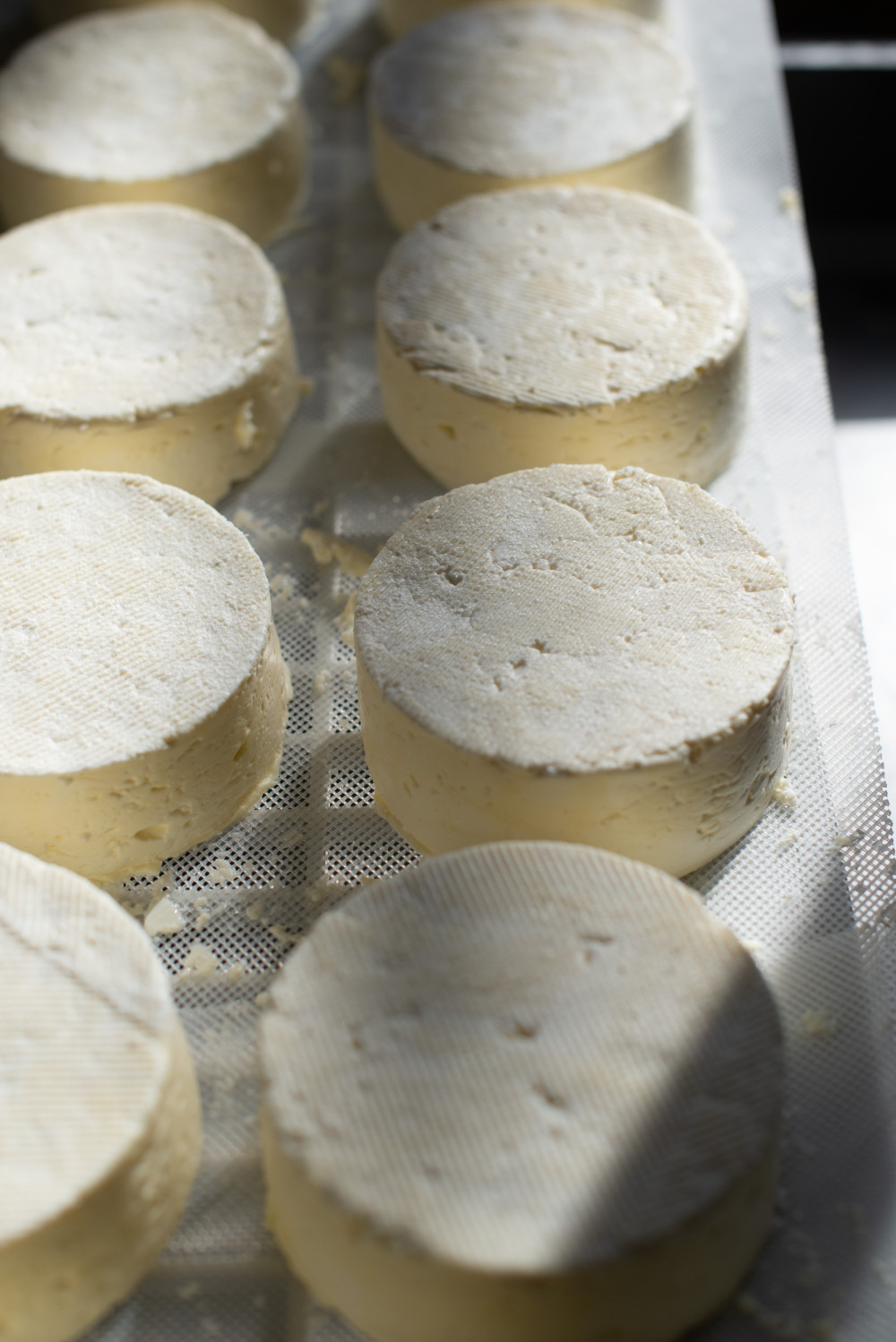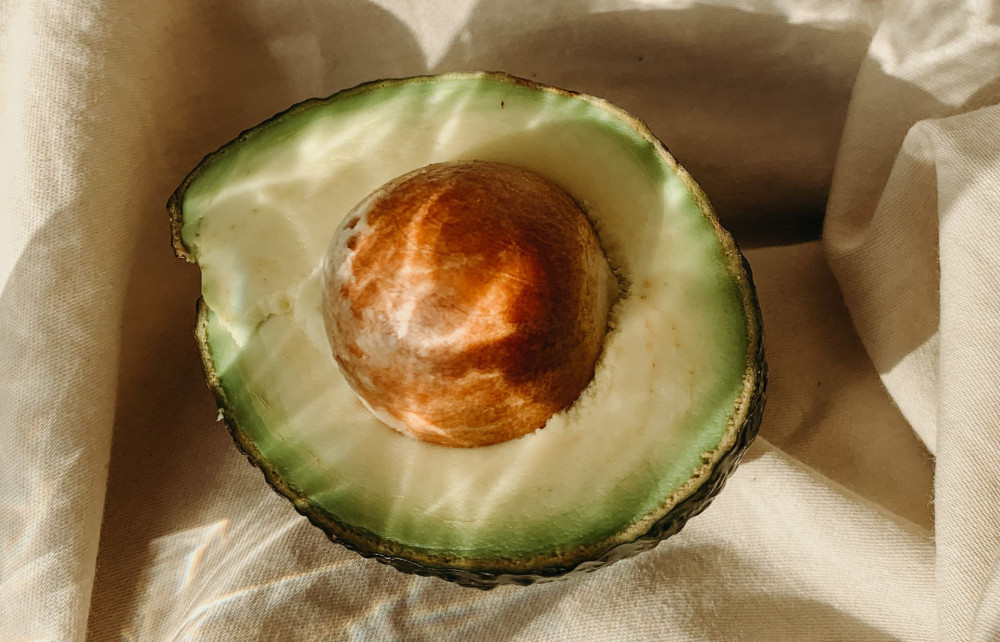
Improving sleep in 3 simple steps
You have an important pitch tomorrow, so you work late to deliver the perfect presentation. Exhausted you crawl into your bed, but you just can’t catch sleep. Your brain doesn’t allow you to rest and you see all nightly hours passing by. A few hours later, your alarm clock wakes you up. You get up tired and with a splitting headache, you go to the office. The presentation is a flop.
 You also hate your alarm clock?
You also hate your alarm clock?
A true nightmare, but for a lot of people an everyday reality. How can you avoid this and get a night of better sleep? Thanks to this article, you will be able to catch sleep better and improve your sleep quality. In three simple steps, we will help you improving your sleep hygiene and provide you with tips for a night of sleep.
Just admit it, you also underestimate the importance of sleep. We want to live our lives to the fullest and do as much as possible. Sacrificing sleep to be able to stay a little longer at a party, continue working until two in the morning or experience the ending of that exciting Netflix-series late at night… Our sleep is usually the first thing we sacrifice. But that is a big paradox: to live a healthy, conscious, and efficient life during the day, we really do need our sleep.
The terrible consequences of insomnia
A study at Erasmus University Rotterdam showed that more and more people suffer from insomnia. if you don’t catch and treat insomnia in time, the acute sleep disorder can become chronic.
The consequences of poor sleep quality are disastrous for our health. Drowsy, listless, and irritable after only sleeping five hours last night? Completely normal, because your body gives you the signal that this is not healthy.
Chronic insomnia is a trigger for obesity, cardiovascular disease, cerebral hemorrhage, increased blood pressure, and even diabetes. It also harms your libido and mental health. In short, your entire health suffers from sleep deprivation.
We finally convinced you about the importance of a good night of sleep? Do you want to get through your day more energetic and at the same time more productive and meaningful? Great, now is the time to take action and to sleep better. The good news: it’s not that hard and we can help you! It can be done in three simple steps: analyze your sleep, look for the causes and apply several smart sleep tips. Ready for a night of good sleep?
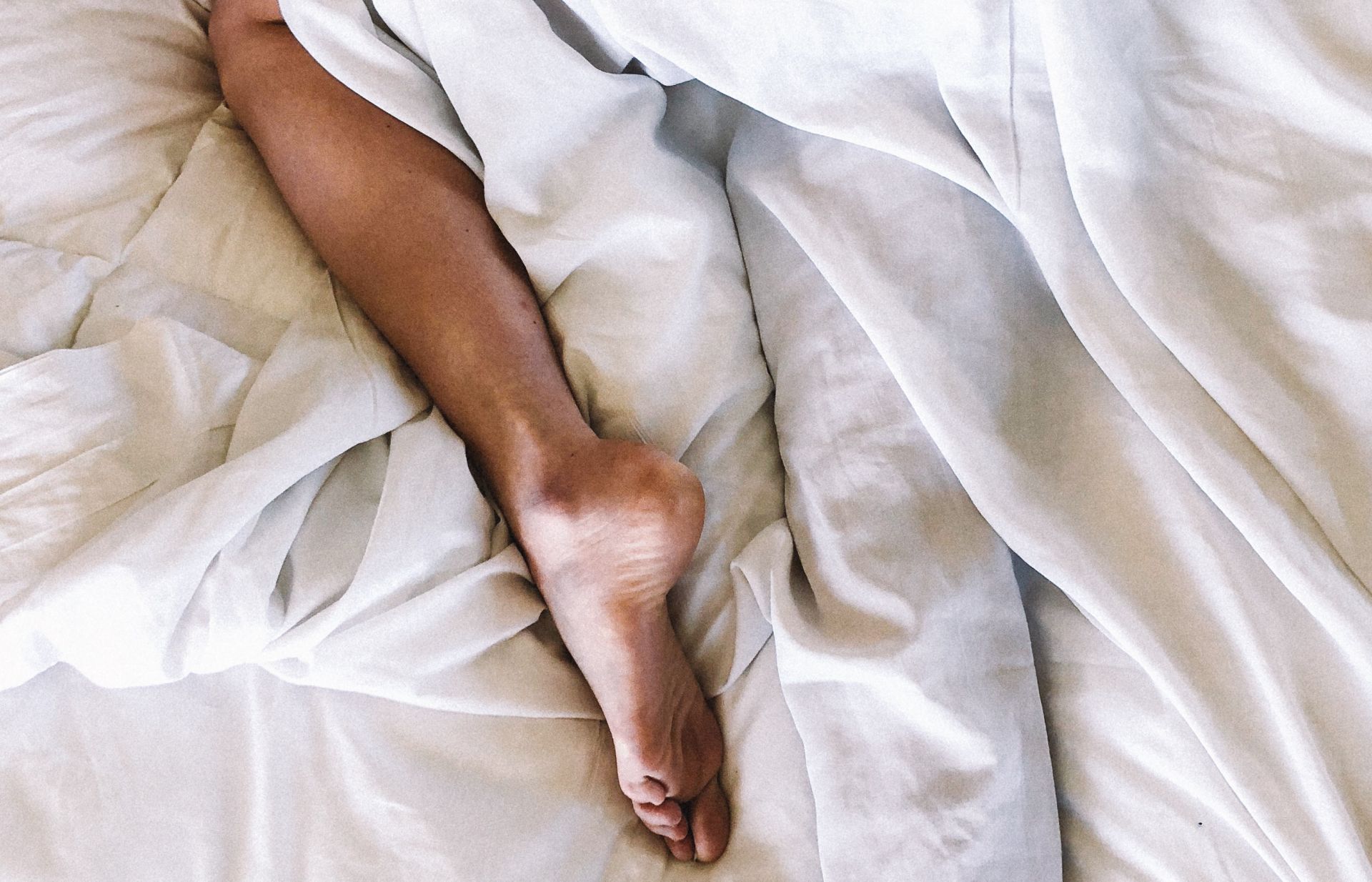 Analyse your sleep hygiene and sleep like a baby
Analyse your sleep hygiene and sleep like a baby
Step 1: analyze your sleep hygiene
How do you know if your sleep hygiene is problematic? Based on the three questions below, you can easily determine this:
- Do you fall asleep within five minutes?
- Is your sleep uninterrupted?
- Do you wake up between 6 and 8 am without the help of an alarm clock and with enough energy to start your day?
Did you answer one or more of these questions negatively? Then you better take a closer look at your sleep hygiene.
Step 2: search for the cause
To improve your sleep, it’s important to analyze the problem first. Poor sleep can have various reasons, but the hormone melatonin always plays a central role.
Our sleep cycle is regulated by that hormone. In the evening our body produces melatonin. That will make you feel tired, let you catch sleep easier, and make you wake up less quickly. Melatonin is our body’s most powerful antioxidant and protects us against DNA damage and cancer. That illustrates how important melatonin and sleep are for our body…
But how can melatonin production be disrupted? From the many studies on sleep, we can filter eight major influences on melatonin production. Some are more surprising than others:
Cause 1: stress
Because of a demanding client, you had to work overtime tonight. When you finally arrive home, one of your children turns out to be ill. And as if that is not enough, your boss calls you to ask if you can put together a presentation by tomorrow morning. Your stress level reaches unprecedented heights. Once in bed, it takes at least an hour until you manage to fall asleep…
Stress is the worst enemy of good sleep. With stress, you produce cortisol or stress hormones. Cortisol is the opposite of melatonin. A lot of stress equals a high dose of cortisol and therefore a low amount of melatonin, which is harmful when you want to avoid sleep problems.
Cause 2: light
Your work for the day is done, you had a nice evening meal and everything is neat and tidy. Time for some relaxation. You watch some videos on your laptop, check your favorite series on Netflix, and right before you go to bed you take your smartphone to go through the social media. Falling asleep is very difficult…
Exposure to so-called Blue Light doesn’t benefit melatonin production. The screens of smartphones, laptops, and televisions emit a lot of that Blue Light. Therefore, it’s not wise to look at those bright screens just before going to bed.
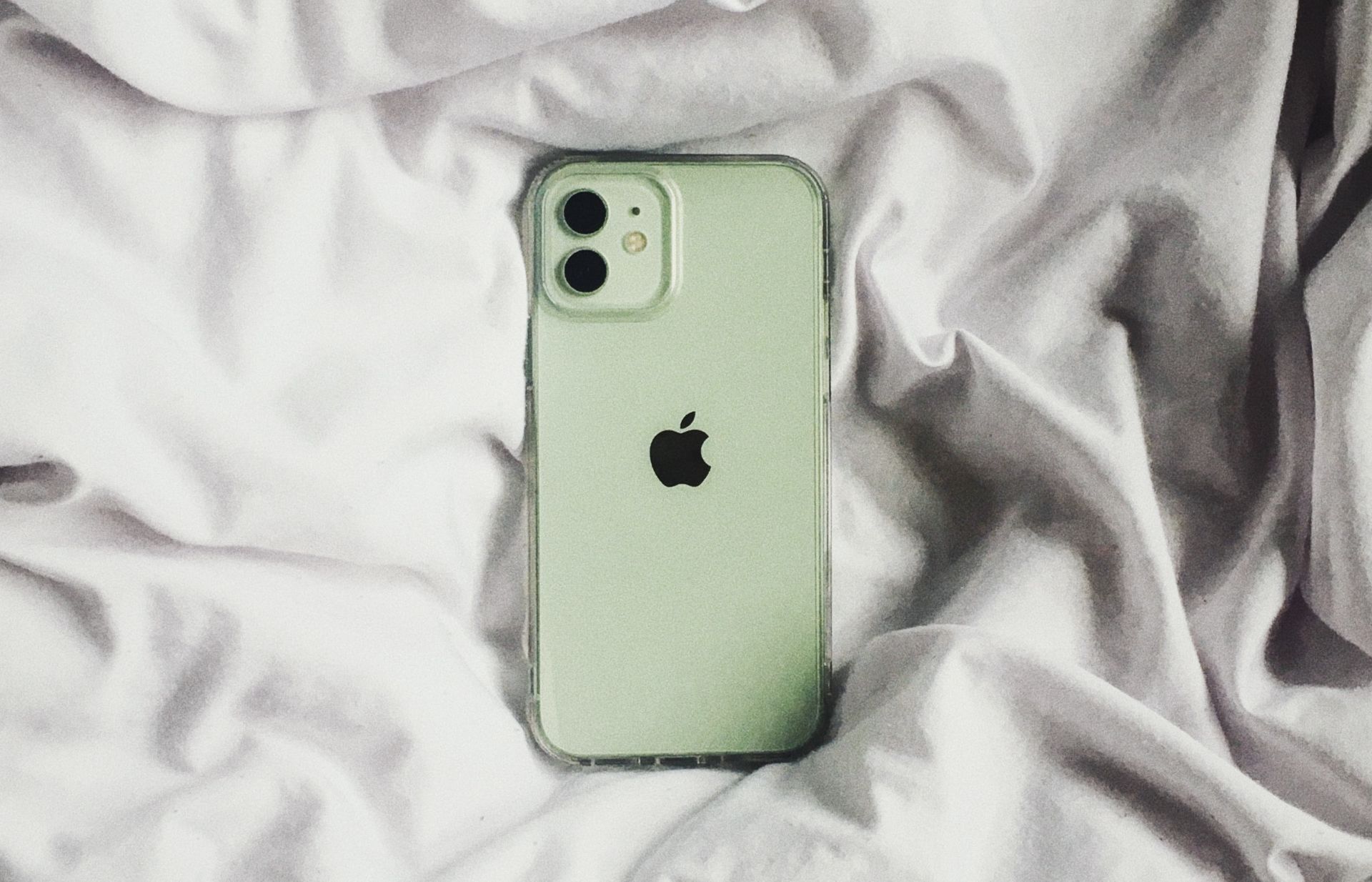 Blue Light can disturb our sleep
Blue Light can disturb our sleep
Cause 3: nutrition
After a long day at the office, you look forward to a nice evening meal. However, your partner sends you a message that he is getting late, so you will have to cook for yourself. You open the fridge and come to the disappointing conclusion that it’s almost empty. Pasta with tomato sauce from the freezer to the rescue! An extra portion of cheese? Hell yes! As a dessert, you eat a bag of chips in front of the television. You wake up at three in the morning and have trouble falling asleep…
Nutrition is an important element for a healthy sleep cycle. Carbohydrate-rich foods as pasta or a bag of chips will affect night-time blood sugar levels in such a way that cortisol is produced. In this way you are consciously – and sometimes even unconsciously – ripped out of your deep sleep.
Cause 4: dopamine
After a long day at work, you decide to go for a run before going to bed. A hot shower and an exciting movie later, it’s bedtime. But falling asleep is very difficult. Your body and mind are still too alert and awake. The night is terrible…
Activities that generate dopamine are detrimental to your sleep quality. Exercising, scrolling through social media, and playing video games are examples of activities that strongly stimulate dopamine production in the body.
Cause 5: temperature
Right before bed, you take a hot shower. You certainly earned it after a long day of work. Because it’s winter, you turn the heating in your bedroom on and close the window. In the middle of the night, you wake up, bathing in sweat…
Your temperature has a major influence on your sleep quality. At night, the body must cool down for better sleep and recovery.
Cause 6: electromagnetic radiation
An hour before bedtime, you get a call from your best friend. You hang on the phone for minutes, right before you go to your bedroom. You fail to fall asleep…
Studies showed that only 15 minutes on the phone is enough to kill the amount of melatonin in our brain. More than ten years of research about the influence of electromagnetic radiation has been shown to strongly affect the quality of sleep. It also causes a decrease in REM sleep.
Cause 7: biorhythm
After a tiring weekend, you dive exhausted into bed at nine on a Sunday evening. On Monday you go for a drink after exercising and you can only go to bed at eleven. On Tuesdays, you work on a presentation till late at night, so you don’t go to sleep before midnight. It’s not easy to fall asleep, you wake up often and start your day with a lack of energy…
A disturbed biorhythm can lead to serious sleeping problems. A disturbed internal clock will reduce your sleep time and your sleep quality will decrease significantly.
Cause 8: stimulants
On Friday evening the working weekends with a drink among colleagues. To overcome the classic afternoon dip, you need to drink a cup of coffee around 4 pm. From the office, it goes to the pub, where you have a great time. Before you know it, you and your colleagues finished two bottles of wine. You sleep very restlessly and the next day you wake up with a headache.
It’s quite obvious that substances such as alcohol do not benefit our sleep quality. They make you sleep irregular and restless. Caffeine temporarily stimulates concentration, but makes catching sleep more difficult, especially when you consume it late in the day and too close to bedtime.
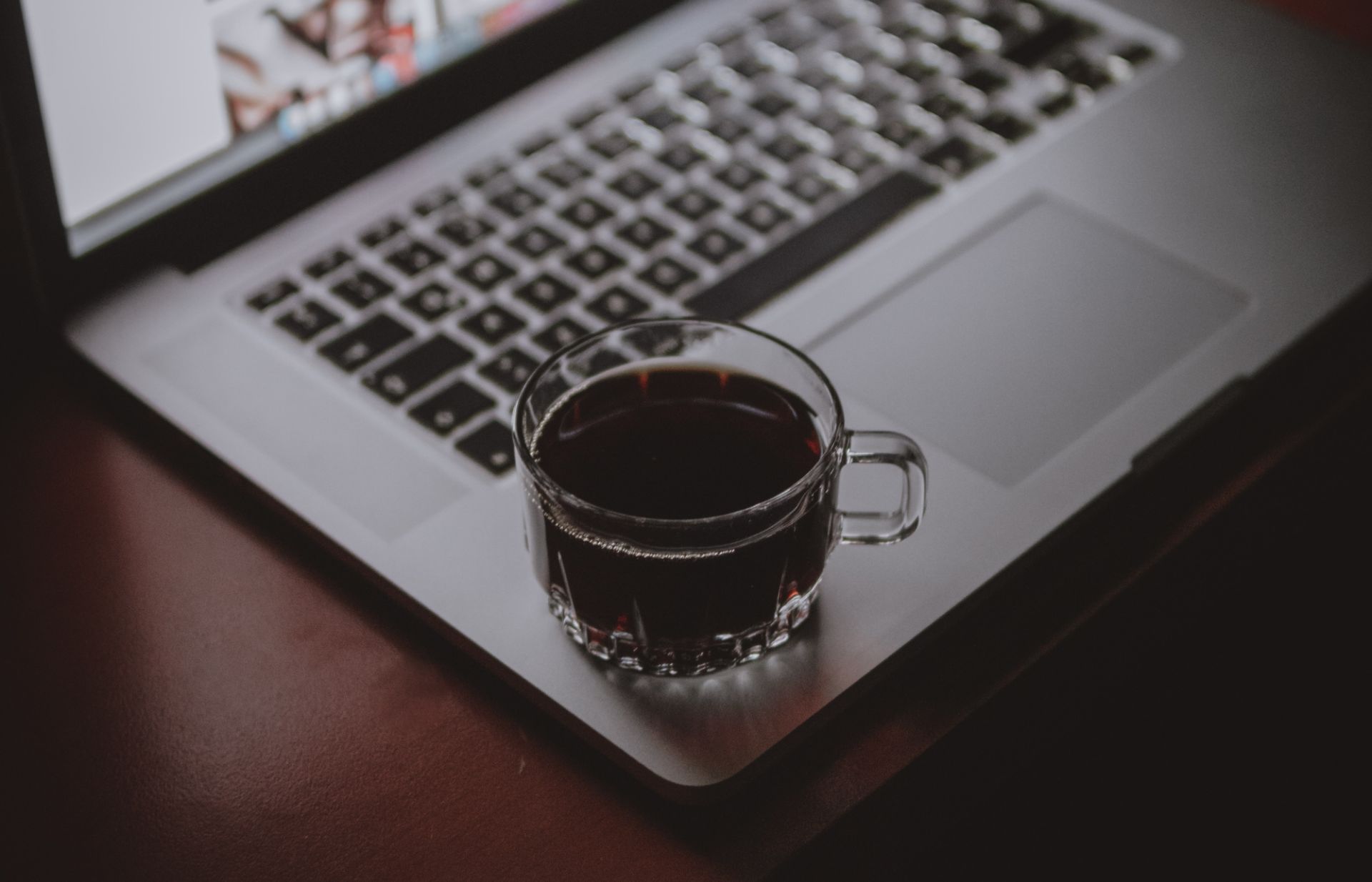 The intake of caffeine in the hours before bedtime is bad for our sleep hygiene
The intake of caffeine in the hours before bedtime is bad for our sleep hygiene
Step 3: 7 tips if you want a good night’s sleep
Do you already have an idea what’s causing your sleeping problem? Good, now it’s time for some tips to get rid of those sleep problems. Prevention is better than cure, especially if you have problems falling asleep. Especially because once the complaints become chronic, it is increasingly difficult to repair the caused damage. But don’t worry: we can help you with 7 practical tips to improve your sleep.
Tip 1: No more screens close to bedtime
Turn off all screens at least a few hours before bedtime. To stimulate the production of melatonin a little earlier, you can install a Blue Light filter on your devices starting from about 7 pm. Anti-Blue Light glasses can also offer a solution. In the morning, on the other hand, you should expose yourself to as much natural sunlight as possible. This helps with melatonin regulation in your body.
Tip 2: Manage your stress to sleep better
The day can be challenging: work, deadlines, family… During the day, there’s a lot of weight on our shoulders. Therefore it’s a utopia to reduce stress. It’s far more effective to strive for stress management. How to manage my stress? Use sedatives such as valerian or chamomile.
Tip 3: Lower the temperature
A warm room can keep you awake. A simple, but effective tip: you need to lower the temperature in your bedroom to 16 degrees Celsius. For those who get cold quickly, this will take some getting used to, but it will only improve your sleep quality.
Tip 4: Avoid electromagnetic radiation
Electromagnetic radiation is one of the main triggers for poor sleep quality. Therefore, make sure your WiFi is turned off and don’t use your smartphone in the evening. Too drastic? At first, try airplane mode.
Tip 5: Try to take the right supplements
Enrich your body with the right supplements. Studies have shown that supplements such as magnesium, inositol, and taurine stimulate melatonin production.
Tip 6: Take your time to relax before bedtime
After a busy, demanding day, it’s not a good idea to try to sleep right away. Likely, you won’t catch sleep immediately. First, allow yourself some well-deserved rest and engage in a relaxing activity that can improve your sleep: reading, breathing exercises, static stretching, walking, yoga, meditation…
Tip 7: Listen to classical music in your bed
It’s proven that classical music stimulates our sleep. It especially stimulates the production of serotonin and gamma-aminobutyric acid, two important sleep-promoting neurotransmitters that give your brain some rest. Special suggestions? Especially the baroque music with a tempo of 60 beats per minute seems to lull you to sleep. Goodnight!
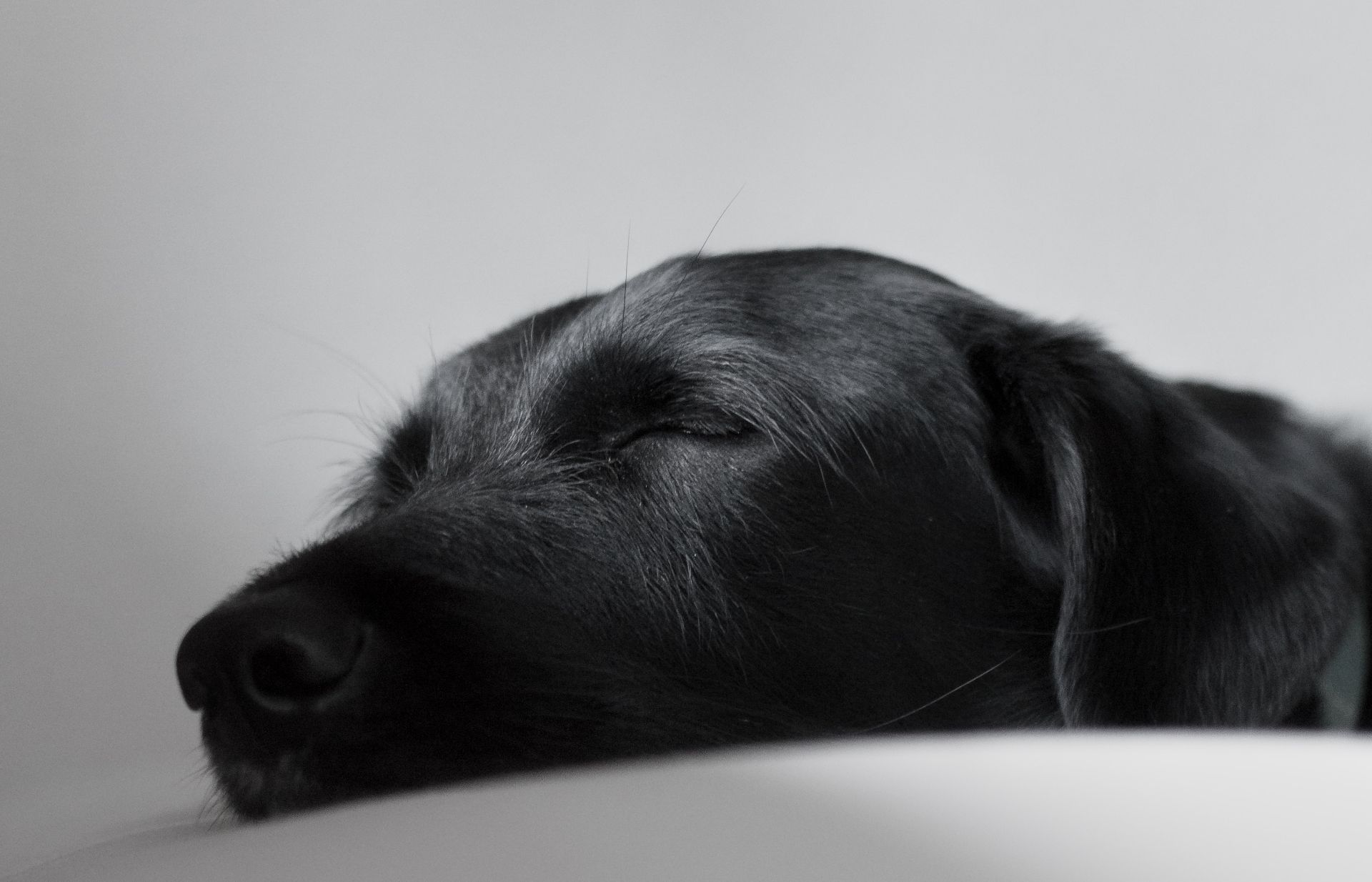 Classical music stimulates our sleep
Classical music stimulates our sleep


Carbohydrates: controversial, but more useful than we think
